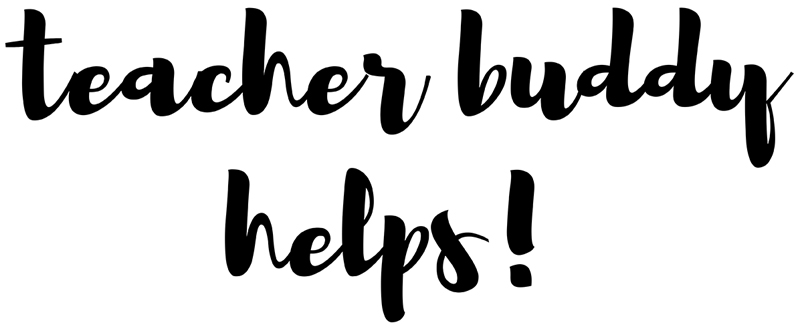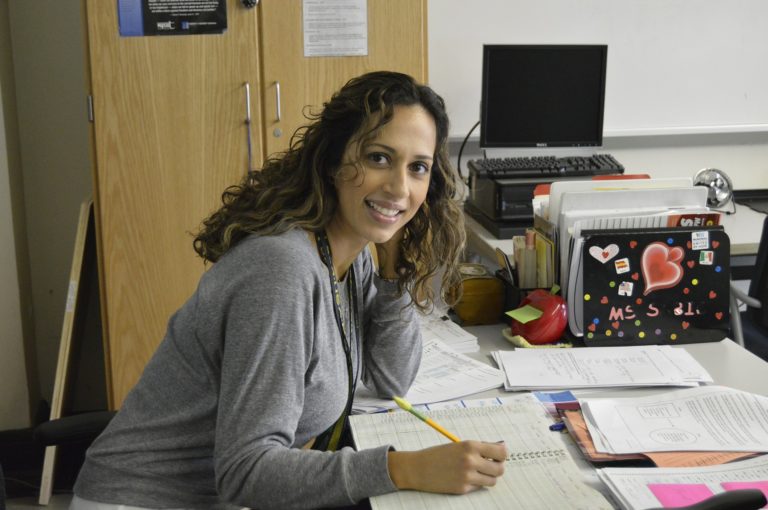Are You Following The Four Agreements? You Should Be!

Have you heard of the four agreements? I hadn’t either until I attended a conference where the speaker was sharing it with the audience. So, when I returned from the conference I ordered the book right away from Amazon.

**
It’s by Don Miguel Ruiz and was written in 1997. It is a book that is based on the beliefs of the ancient Toltec wisdom and is an easy read since it’s a small book.
What exactly are the “Four Agreements”?
Basically, in a nutshell, the four agreements Mr. Ruiz describes are:
1. Be Impeccable with your word
2. Don’t take anything personally
3. Don’t Make Assumptions
4. Always do your best
Before we go into each of the four agreements, I thought I would offer you my FREE 101 Teacher Tips; The Ultimate List of Everything Teaching. Just sign up below and I will zip it right over to your email box.
**
The first agreement describes the power of words; “Be Impeccable with your word”
Our culture is just now recognizing the power of the spoken word and the devastation of verbal abuse as a true form of abuse and studying the effects is has on both children and adults.
Mr. Ruiz states, “The word is not just a sound or written symbol. The word is a force; it is the power you have to express and communicate, to think, and thereby create the events in your life. You can speak. What other animal on the planet can speak? The word is the most powerful tool you have as a human; it is the tool of magic. But like a sword with two edges, your word can create the most beautiful dream, or your word can destroy everything around you.”
How powerful is that? A quick reminder that we need to watch what we say. We need to realize that we don’t always know what our students (or our colleagues) are dealing with at home.
We need to realize that sometimes some words of encouragement that we give a student can stay with them for their entire life. NOW THAT’S POWERFUL!
On the flip side
But, on the flip side, a verbally abusive teacher can be a nightmare. I recently read a story on social media from a blogger who wrote about her year of hell in a class where she was bullied by her teacher.
My eyes are getting misty now thinking of her ordeal, and the fact that over 30 years later she can write about it in such detail – as if it happened only yesterday.
That’s the power of the word.
The Second Agreement is “Don’t take anything personally”
Mr. Ruiz discusses that when others say cruel things, it’s not about us, but rather about them and their sad lives. And that if we can be strong enough to not take it personally we will have more peace.
He writes, “It is not important to me what you think about me, and I don’t take what you think personally. I don’t take it personally when people say, “Miguel, you are the best,” and I also don’t take it personally when they say, “Miguel, you are the worst.” I know that when you are happy you will tell me, “Miguel, you are such an angel!” But, when you are mad at me you will say, “Oh Miguel, you are such a devil!” … Either way, it does not affect me because I know what I am.”
If you can reach the point where you are Ok with yourself and don’t have the need to be validated by others, you will have a much easier time with this agreement.
I believe that this agreement is especially important to remember at work. I used to tell my secretaries in the front office that the parents who are happy with the school don’t visit us; they are busy with life.
It is only the ones with a problem or something they need done or solved that come to visit us.
And sometimes these parents are annoyed or angry. So, don’t take it personally, it’s not about you, it’s about their problems or issues.
In the classroom, this idea can manifest itself in the angry or upset child/student who blurts out mean, ugly, and hateful things to you in his anger. It’s not about you! Don’t take it personally! But YES, deal with the situation that is in front of you.
The third agreement is “Don’t make assumptions”
Mr. Ruiz writes, “We have the tendency to make assumptions about everything. The problem with making assumptions is that we believe they are the truth. We could swear they are real. We make assumptions about what others are doing or thinking – we take it personally – then we blame them and react by sending emotional poison with our word. That is why whenever we make assumptions, we’re asking for problems.”
Later in the chapter, Mr. Ruiz equates this with gossiping about others.
Everyone reading this can think of a time where they assumed something and then later found out they were mistaken or incorrect about the situation. The internet is full of stories about situations where people are assuming something, but then the truth is a completely different situation.
I was told, a while ago, that when you ASSUME you make an ASS out of U and ME. That is a pretty good description.

I remember the story about the woman on the bus in NYC with her two-year-old son who was misbehaving. And how she was staring out the window not taking the time to discipline her son. The passenger telling the incident was getting angrier and angrier because this misbehaving little boy was not being corrected.
Finally, someone says something to the child about settling down and the mother gets startled back into the reality of what’s going on. She apologizes to everyone nearby and tells them that they had just left the hospital where her husband had just died.
NOW that certainly changes the REALITY of the situation. We can’t always make assumptions. As a matter of fact, we shouldn’t ever, but we’re human.
The fourth agreement is to “Always do your best!”
Well, how simple is this one! ALWAYS DO YOUR BEST! And yet, many times we get by with just doing the minimum. Doing your best is especially true in your job. You are judged by how well you do and what you achieve.
So, here the question becomes; “WHAT DOES IT TAKE TO DO MY BEST?” And the short answer is preparation. I think one of the KEY indicators of success and organization in the teaching field is PRIOR PREPARATION!
I have provided some articles on how I have tackled the task of being prepared and organized. My system evolved over a few years, as I am sure yours will. Dare I say, that this is so crucial that (in my opinion) teachers who don’t master this leave the teaching field.
Here are a few articles:
12 Reliable Survival Tips for First Year Teachers
Steps for Launching Your Perfectly Organized Classroom
Teacher Organization – How to Prepare and Stay Focused
In Conclusion
So, to sum up this article, we all have the power to follow these four agreements if we try. Be Impeccable with your word, you will never regret it. Try your best not to take what others think personally. Remember, it is about THEM and not about YOU!
Third, don’t assume anything. Love them all, and help them all. How you help one student may be very different than how you help others. And that’s Okay! And finally, Always do your best.
Until next time,
Your Teacher Buddy Dawn







https://waterfallmagazine.com
Thankfulness to my father who informed me on the
topic of this webpage, this web site is really
remarkable.